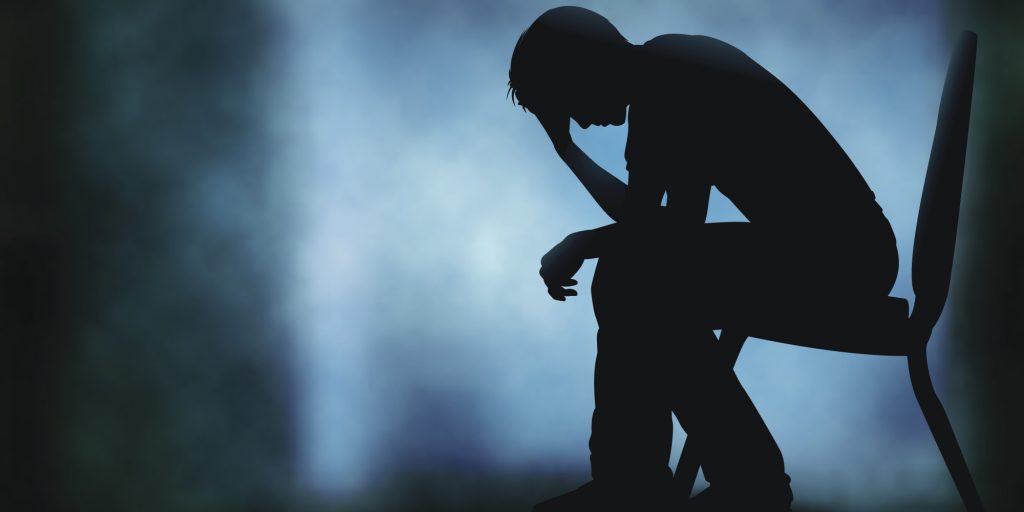According to the World Health Organization (WHO), depression is the most common illness worldwide and the leading cause of disability. They estimate that 350 million people are affected by depression, globally. It is also one of the most misunderstood diseases in the world, commonly mistaken for anxiety, sadness or mood swings.
Deepak Kashyap is a wellness counsellor, coach, advisor, and LGBT rights activist and he practices in Toronto, Dubai and Mumbai. He holds a Master’s Degree in Psychology from the UK and is a trained psychotherapist in the CBT and REBT schools of psychotherapy. He can be reached out to on http://www.deepakkashyap.com/. On 14th January 2018 he conducted a session on “Depression, loneliness & anxiety” to a group of over 20 LGBT youth in Delhi with a focus of raising education and awareness of mental health issues. His session was hosted by the Delhi based Queer Collective, Harmless Hugs, in association with India HIV/AIDS Alliance.

Among the topics of discussion was clinical depression. While it is crucial to never self-diagnose one’s own mental condition without the guidance of a licensed mental health expert, it is equally important to be aware of the symptoms of clinical depression. Should you feel that 5 out of these 7 symptoms apply to you over a 2- week period or longer, please get in touch with your local mental health expert, else get in touch with Deepak Kashyap from his website.
Mood
In psychology, a mood is an emotional state that is said to be the way one feels at a time. Moods are said to exist in two valences- positive and negative. In the case of depression, the valence of one’s mood is in the negative. While a depressed mood is a normal temporary reaction to life events such as loss of a loved one, if this negative mood lasts longer than 2 weeks it is most likely a strong indicator of clinical depression. It is also a symptom of some physical diseases and can also be a side effect of some drugs and medical treatments. A depressed mood is also a symptom of some mood disorders such as dysthymia.
Sleep
Sleep is a naturally recurring state of mind and body, characterized by altered consciousness, relatively inhibited sensory activity, inhibition of nearly all voluntary muscles, and reduced interactions with surroundings. If you’ve been diagnosed with clinical depression, you may experience trouble getting to sleep or staying asleep. And that’s because there is a definite link between lack of sleep and depression. In fact, one of the common signs of depression is insomnia or an inability to fall and stay asleep. Erratic sleep patterns are also an indicator of depression.
Physical Health
Clinical depression negatively affects physical endurance. It’s important to note that depression doesn’t just cause physical symptoms; it can also increase one’s risk for — or may worsen — existing physical illnesses or conditions. In turn, some illnesses can also trigger depression. Common changes in physical health during depression include chronic fatigue, decreased interest in sex, increased aches and pains and decreased appetite. As with other indicators, these symptoms may only be linked with depression if observed for 2 weeks or longer.
Behavioral Changes
Erratic behavioral changes and a decreased interest in things that were once areas of interest are common signs of depression. Constant feelings of agitation, restlessness, refusal to socialize, lethargy, procrastination, a decreased interest in food and erratic sleep pattern may be linked to depression
Cognitive changes
Cognitive symptoms can interfere with all areas of a person’s life, including work, school and their relationships are problematic and may be linked with depression. They are like behavioral changes and include greater feelings of self-doubt, irrational thinking, poor concentration, forgetfulness, reduced reaction time, distractibility etc.
Weight
Depression is linked with erratic changes in weight. Some people gain weight when they are depressed, others lose weight to an unhealthy degree.
Appetite
Linked closely with depression, there is a marked change in one’s appetite during depression. Some people’s appetite increases, others’ decreases to a great degree during depression.
While it is important to be cognizant of these 7 symptoms of depression, it is also important to understand that professional assistance is key to combating depression. If either you or someone you know is experiencing at least 5 out these 7 symptoms of depression, over a duration of 2 weeks or longer, then please contact your local mental health expert immediately.
- 7 Ways to Identify if You are Depressed - February 2, 2018

